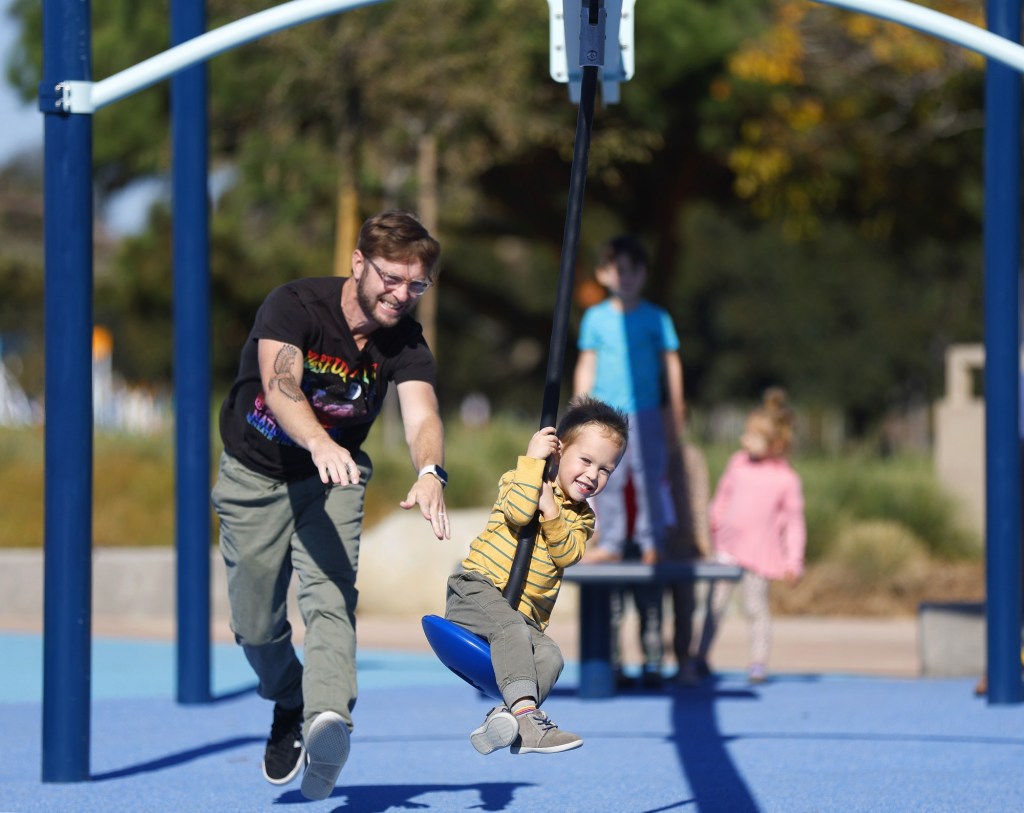San Diego wants to know what residents want from their city’s parks and recreation.
The city’s new Community Recreation Needs Assessment, launched Wednesday, asks people to weigh in on what they would like to see in their parks and recreation opportunities, and how the city can improve its services.
The programming comes as a result of a 2021 performance audit that found the Parks and Recreation Department was likely unaware of community recreational needs and lacked a plan to provide resources more equitably.
Through a mix of surveys, virtual workshops and public meetings, the assessment aims to identify public needs and create a plan to address them. The city expects it to be completed by next summer.
“We really want to know where we’re missing the mark — where we can improve the programs and services that we’re offering at our local recreation centers and aquatic facilities to ensure that we’re meeting those programmatic needs,” said Sarah Erazo, deputy director at the city’s recreation services division.
“They’re going to vary from community to community,” she added, “so having that input is just the most valuable piece that we’ll get out of this so that we can serve our communities better.”
A survey is now open to residents to share their thoughts on the department’s activities and facilities. Residents have until Feb. 28 of next year to complete it.
The rest of the assessment will be carried out over the coming months for each city council district — prioritized based on communities of concern — with a mix of community engagement opportunities like workshops, interviews and public meetings.
Districts 4, 8 and 9 will be assessed in the first phase, which is expected to begin by late next month. Districts 3, 6 and 7 will be in the second phase, and districts 1, 2 and 5 will be in the third and final phase. Each phase is expected to take two to three months.
Once the assessment is complete, city contractor Keen Independent Research will collect and review the data and compile its findings — including effectiveness of existing programs, resident satisfaction and demographic information — in a final report that will also lay out goals to help guide improvements to address inequity.
Some improvements may be quicker to make, said Salome Martinez, program manager at the city’s recreation services division — for instance, enhancing senior programming at a rec center.
For bigger, more expensive efforts, Erazo says the department would request funding from the city to support its equitable programming — as she says it has for years since the 2021 audit found deficiencies in the department’s equity and access.
Erazo also says the department will look to philanthropy, grants and funding from the city’s Opportunity Fund, a department fund designed to support recreational development in communities of concern.
The city still faces budget turmoil, even though it closed a $350 million deficit earlier this year without making planned cuts to rec center hours.
“We realize that, when we are in budgetary restraints, other funding sources are critical to continue supporting programs like this in communities of concern,” she said.
